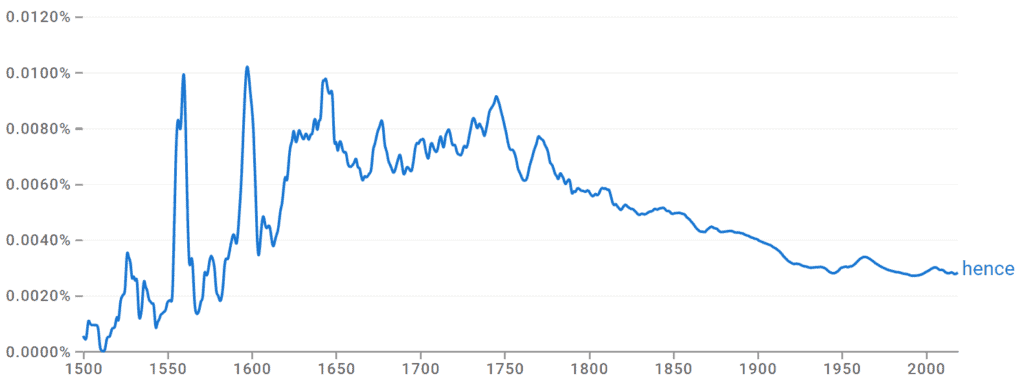The English language is highly influenced by other countries, with many words adapted through the years to our modern use in their definition and usage.
The similarities some of these words have to their origins can be confusing to language learners, especially if the word can be used in more than one way to express or detail the author’s message.
The word hence is an excellent example of this. It offers various meanings when used as an adverb and can also be used as an interjection in forceful speech. These multiple uses can create frustration, which is why we’ve put together this simple guide for you to use.
What Does Hence Mean?

Hence is an adverb that can be used to replace various phrases and mean different things. This includes,
1. For this reason, therefore
For example:
- The institution charged tuition despite being a public service; hence, it could not apply for the service community grant.
2. From this source, from this place
For example:
- She named her firstborn after her grandmother, hence the old-fashioned name.
3. From now, from that time
For example:
- It will likely be one hundred years hence that will witness the technological changes required for resourceful green energies.
4. Or used as an interjection to say “away” or “depart.” This is obsolete in modern usage (but it is still fun to say.)
For example:
- Hence! To the hills, we ride!
It once functioned as a noun, from hence, that is occasionally still used but has fallen out of modern English use due to the redundancy it suggests.
For example:
- Please look from hence our newest guest arrived from.
Synonyms of Hence
To help you understand the uses of the word hence, consider the following synonyms:
- So
- Thus
- Accordingly
- Consequently
- From now on
- It follows that
- On that account
- Out
- Then
- Thereupon
- Wherefore
Origin of Hence and Its Use
nGram:

The original use of hence comes from the late 13th-century hennes, an Old English word meaning “away from here.” Hennes is influenced by the West Germanic heonan, meaning “away, hence” and the Old Saxon word hinan.
The first recorded use to infer from here and there was recorded in 1382 by Wyclif, an English scholastic philosopher, in how writings as hennys & pennys to mean “from here and there, on both sides.”
The modern spelling is first recorded in the mid-14th century to mean “away from this place” or “from this moment onward,” with its use “from this circumstance” recorded in the late 16th century.
Let’s Review
Hence is an adverb most often used to mean therefore, from this place, or from this time. It is an old word rooted in the 13th century to originally mean “away from here,” whose use is somewhat obsolete in modern speech and text.
